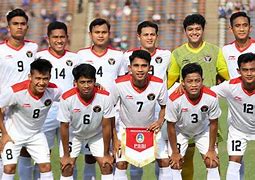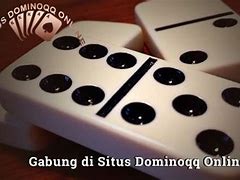
Antawati, D.I., & Muridyani, H. (2013). Parenting self efficacy dalam kaitannya dengan perilaku pengasuhan pada orang tua tunarungu dengan anak berpendengaran normal. Surabaya: Universitas Muhammadiyah Surabaya. Bandura, A. (1989). Regulation of cognitive processes through perceived self-efficacy. Developmental Psychology, 25 (5), 729—735. Bowlby, J. (1980). Attachment and loss: Vol 3. Loss: Sadness and depression. London: Hogarth Press. Brooks, J. (2011). The process of parenting (8th edition). New York: McGraw- Hill. Campion, M.J. (2005). Who’s fit to be parent? United States: Routledge. Coleman, P.K., & Karraker, K.H. (1997). Self-efficacy and parenting quality: Finding and future applications. Developmental Review, 18, 47—85. Coleman, P.K., & Karraker, K. H. (2000.) Parenting self-efficacy among mothers of school-age children: Conseptualization, measurement and correlates. Family Relations: An Interdisciplinary Journal of Applied Family Studies, 49 (1), 13—24. Coleman, P.K., & Karraker, K.H. (2005). Parenting self-efficacy, competence in parenting, and possible links to young hildren’s social and academic outcomes. Dalam Saracho, O.N., & Spodek, Bernard (Ed). Contemporery perspectives on families, communities, and schools for young children. United States: IAP. Cram, P.H., Waarfield, M.E., Shonkoff, J.P., & Krauss, M.W. (2001). Children with disabilities: A longitudinal study of child development and parent well being. Monographs of the society for research in child development, 66 (3). Deshen, S. (2012). Blind people: The private and public life of sightless israelis. New York: SUNY Press. Freedman-Doan, C.R., Arbreton, A.J., & Eccles, J.S. (1995). Under my Influence? Parent and family factors associated with parenting efficacy in the elementary years. Symposium: Models of parenting efficacy from infancy through adolescence. Glover-Graf. (2012). Sexuality and disability. Dalam Marini, Iromo dkk (Ed). Psychosocial aspects of disability: Insider perspective and strategies for counselors. New York: Springer Publishing Company. Hallahan, D,P., & Kauffman, J.M. (1988). Exceptional children: Introduction to special education (4th ed). New Jersey: Prentice Hall. Holloway, S.D., & Behrens, K.Y. (2002). Parenting self efficacy among Japanese mpthers: Qualitaive and quantitative perspective on its association with childhood memories of family relations. New Diractions for Child and Adoloescent Development, 96, 27—43. Hong, Y. R., & Park, J. S. (2012). Impact of attachment, temperament, and parenting on human development. Korean Journal of Pediatrics, 55(12), 449—454. Hoover-Dempsey, K.V., & Sandler, H. M. (1997). Why do parents become involved in their children’s edication? Review of educational research, 67 (1), 3—42. Hurlock, E.B. (1980). Psikologi perkembangan suatu pendekatan sepanjang rentang kehidupan. Jakarta: Erlangga. Jones, T., & Printz, R. (2005). Potential roles of parental self-efficacy in parent and child adjusment: A Review. Clinical Psychology Review, 25 (3), 341—363. Kef, S., & Hatzmann, J. (2011). Parenting of mothers and fathers with low vision. Amsterdam: VU University. Leerkes, E. M., & Crockenberg, S. C. (2002). The development of maternal self-efficacy and its impact on maternal behavior. Infacy, 3(2), 227—247. Meadow-Orlans, K.P. (2002). Parenting with a sensory or physical sisability. Dalam Bornstein, M.H(Ed). Handbook of parenting, 4. New Jersey: Lawrence Erlbaum. Moleong, L.J. (2007). Metodologi penelitan kualitatif. Bandung: PT Remaja Rosdakarya Ofset. Papalia, D., Olds, S., & Feldman, R. (2009). Human Development “Perkembangan Manusia” (Edisi 10). Jakarta: Salemba Humanika. Prilleltensky, O. (2007). My child is not my carer: Mother with physical disabilities and the well-being of children. Dalam Marini, I., & Stebnic, M.A (Ed). The Psychological and Social Impact of Illness and Disability (6th edition). New York: Springer Publishing Company. Putri, A.A. (2012). Bekerja dalam keterbatasan. Majalah Psikomedia: Media Bicara dan Perilaku (Edisi Tahun 2012). Socha, T.J., & Staten, C. (2005). Parenting by touch, sound and scent I: Towards a positive eserch agenda. Parental Communication and Blindness.Boston: National Communication Association. Suzuki, S., Holloway, S. D., Yamamoto, Y., & Mindnich, J. D. (2009). Parenting self-efficacy and social support in Japan and the United States. Journal of Family Issues, 30(11), 1505—1526. Teti, D.M., & Gelfand, D.M. (1991). Behavioral competence among mothers of infant in the first years: The meditational role of maternal self efficacy. Child Development, 62 (5), 918—929. Wiryasaputra, T.S. (2003). Mengapa berduka, kreatif mengelola perasaan duka. Yogyakarta: Kanisius.
Offenbar hast du diese Funktion zu schnell genutzt. Du wurdest vorübergehend von der Nutzung dieser Funktion blockiert.
Wenn dies deiner Meinung nach nicht gegen unsere Gemeinschaftsstandards verstößt,
Melde dich an, um fortzufahren.























